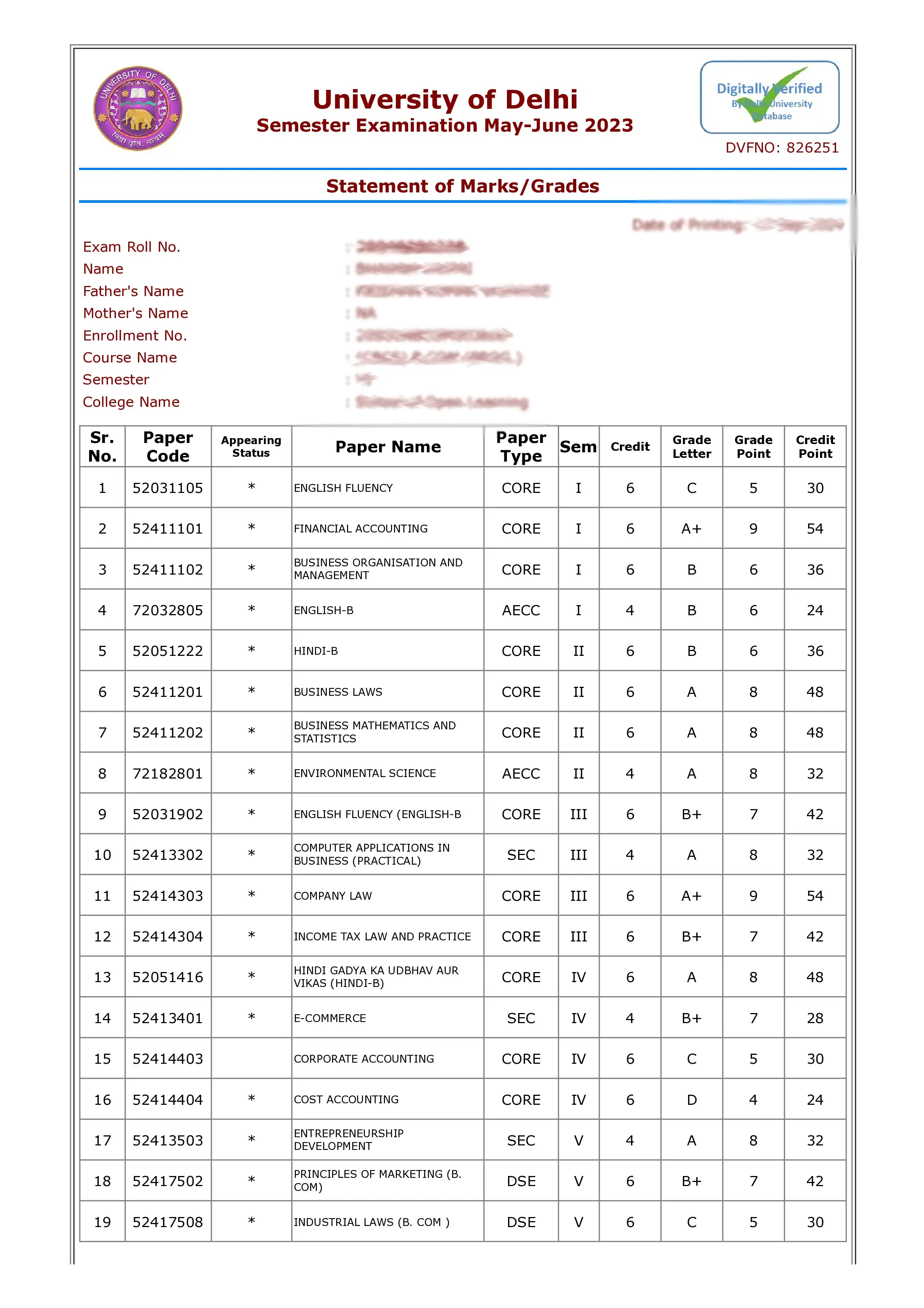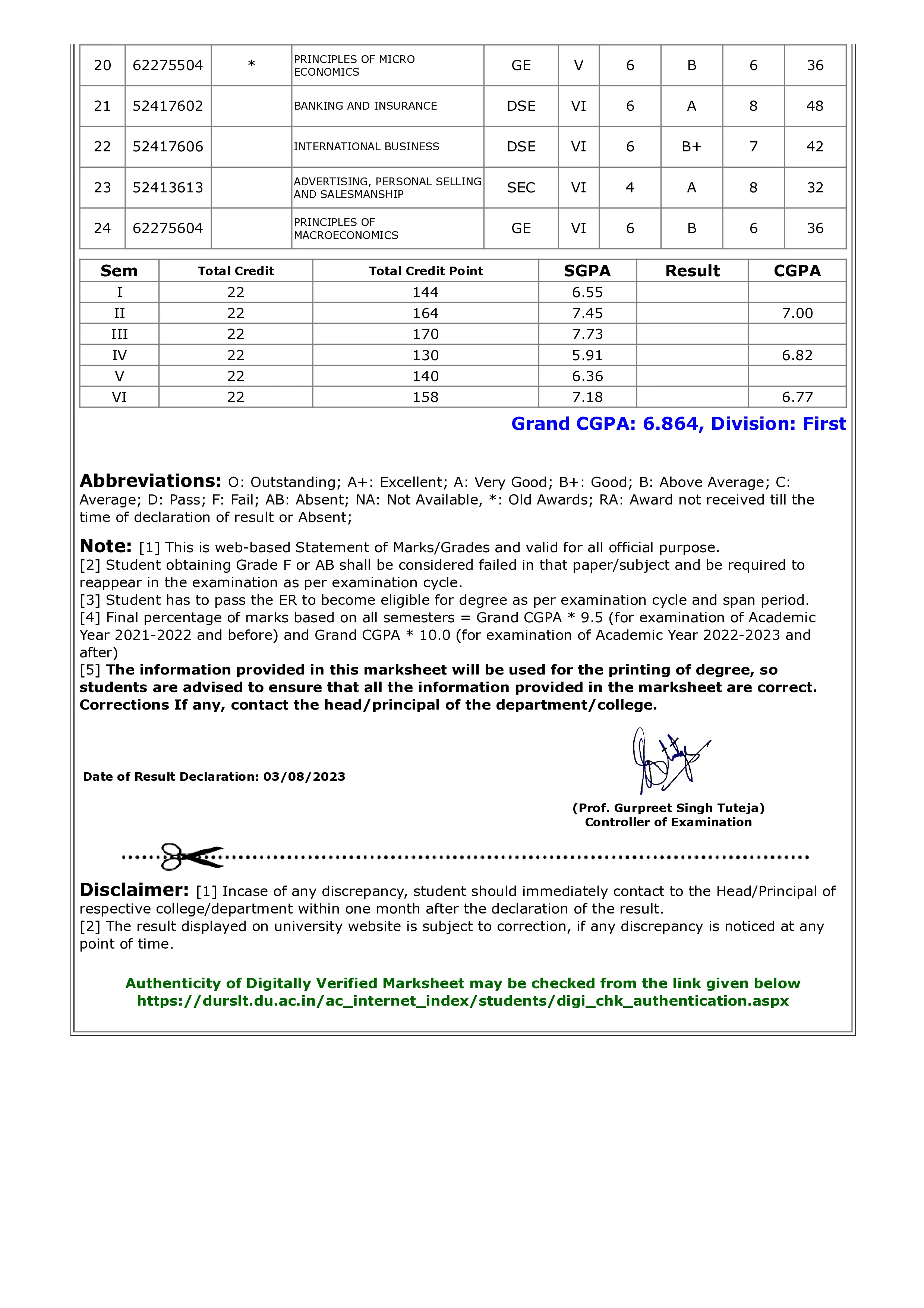



















In universities and colleges, grades are now not displayed in the form of mere numbers. The student is graded through systems like SGPA and CGPA. Sometimes this might confuse students, but these two play a very crucial role in tracking academic progression. When it is about how you perform at school, two words get students into confusion—SGPA and CGPA. SGPA is Semester Grade Point Average, which tells how good you have done within one semester. In short, it provides you with how you have done in those couple of months. CGPA stands for Cumulative Grade Point Average.
As opposed to SGPA, which differs with each semester, CGPA tells you your sum of academic scores of all semesters put together.

CGPA is an abbreviation of Cumulative Grade Point Average, which is the cumulative grade point achieved from all the semesters completed for a given course. Instead of evaluating every semester individually, CGPA merges them and provides one single score, making it easier for universities, employers, or scholarship committees to assess your entire performance.
The formula to calculate CGPA is:
CGPA = (Sum of all SGPAs in all semesters) ÷ (Number of semesters)
SGPA stands for Semester Grade Point Average. Unlike CGPA, which shows your complete course performance, SGPA focuses only on one semester.
The formula for SGPA is:
SGPA = (Sum of Grade Points × Credit Points of all subjects in a semester) ÷ (Total Credit Points in that semester)
If you studied 4 subjects in a semester and scored grade points like:
Then, SGPA = (9×4 + 8×3 + 7×3 + 10×2) ÷ (4+3+3+2)
SGPA = (36 + 24 + 21 + 20) ÷ 12 = 101 ÷ 12 = 8.41
So, your SGPA is 8.41 out of 10.
| Criteria | CGPA | SGPA |
|---|---|---|
| Definition | Cumulative Grade Point Average – average of all semesters combined. | Semester Grade Point Average – performance in one semester only. |
| Time Period | Calculated at the end of the entire course/program. | Calculated after completing one semester. |
| Scope | Shows overall academic performance. | Shows detailed semester-wise performance. |
| Calculation | Average of SGPAs across all semesters. | Based on subject credits and grade points of one semester. |
| Purpose | Used for final results, placements, and higher studies. | Used to track semester progress, identify strengths/weaknesses. |
| Usage | More useful for employers and universities to see the overall performance. | More useful for students and teachers for semester analysis. |
Yes, you can convert CGPA into SGPA, but the conversion depends on your university’s grading system. Most universities use a 10-point scale, but some may follow a 4-point scale.
Since CGPA is an average of SGPA, you cannot directly reverse it without credit details semester wise. However, by using formulas and credit distribution, an approximate SGPA can be calculated.
The general formula used is:
SGPA = (CGPA × Total Credit Points) ÷ Credits of that Semester
But remember, this is an approximate method. The exact calculation depends on your university rules. For official results, always follow the method prescribed by your institution.




The tool enables you to understand what your semester score (SGPA) might have been if you only have the overall CGPA. This comes in handy when you are asked to submit the SGPA for university applications.
Once you have your SGPA, it becomes easier for you to recognize your weak semesters. As a result, you can equip yourself with a strategy on how to enhance your performance, balance your final CGPA, and make it to graduation with good scores.
Figurative calculations can be infatuating due to credit points and the grade systems. However, the process can be made easy using the calculator, which simply offers immediate and correct results without laborious formulas.
Sometimes, academic forms, scholarship applications, or job portals may ask specifically for SGPA instead of CGPA. In such situations, this tool comes in handy as it assists you in getting the right figures at all times.

The University Grants Commission (UGC) has set clear rules for converting CGPA into letter grades. These grades help in understanding a student’s overall performance simply. Based on your CGPA, you can get grades like O (Outstanding), A+ (Excellent), or B+ (Good). Here’s how the CGPA-to-grade conversion works according to UGC:
| Grade | Marks (%) | Grade Point | Description |
|---|---|---|---|
| O | 90 – 100 | 10 | Outstanding |
| A+ | 80 – 89 | 9 | Excellent |
| A | 70 – 79 | 8 | Very Good |
| B+ | 60 – 69 | 7 | Good |
| B | 50 – 59 | 6 | Above Average |
| C | 40 – 49 | 5 | Average |
| P | 35 – 39 | 4 | Pass |
| F | Below 35 | 0 | Fail |
| Ab | Absent | 0 | Absent |

CGPA and SGPA may be different but they have a lot in common. SGPA not only tells you how well you performed during your semester but also reveals your entire academic journey.
A CGPA to SGPA Conversion Calculator is a godsend for the students who intend to continue their higher education, apply for an internship, or job and need to provide semester-wise details. It is a time saver, a confusion eliminator, and a guarantee of correctness. Still, grades are important, but they do not only define success. Concentrate on acquiring new knowledge, developing skills, and utilizing them in the practical world. To have more help in this respect, visit the page for other academic tools and the calculators and converters we provide.
These tools are free and user-friendly, created to help students like you save their precious time and spare themselves some stress!

Yes, it is possible to calculate the SGPA from the CGPA by using the relevant formulas and credit details of the subjects. However, the actual SGPA values depend on the credits of the subjects of each semester, therefore, the value of SGPA calculated from the mark sheet is more accurate.
CGPA to SGPA conversion is a close guess in most cases. Since CGPA is a mean, without the knowledge of subject-wise credits, the conversion of CGPA back to SGPA may not give the exact value. The results issued by the university are the ones to be relied on and are accurate.
To find out the CGPA the average of all SGPA scores from every semester has to be calculated. For instance in a 6-semester course, the cumulative CGPA is derived from SGPAs of all six semesters.
UGC suggests a method for converting CGPA into a percentage, but there is no single formula for converting CGPA into SGPA. Most universities have their own way, so always adhere to the institution's guidelines for conversion.
Generally, in Indian universities, an SGPA of 6.0 or more out of 10 is considered first-class. Nevertheless, the exact cut-off point may be different depending on the institution’s grading policies.
Best-in-class content by leading faculty and industry leaders in the form of videos, cases and projects, assignments and live sessions